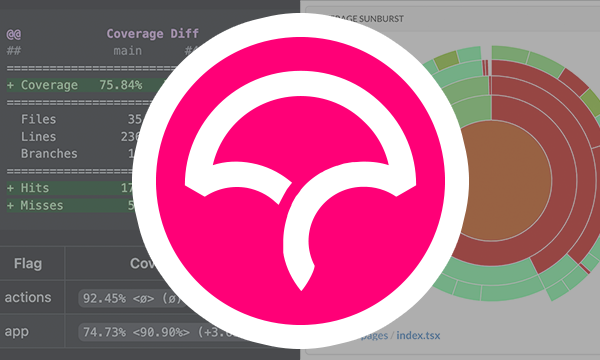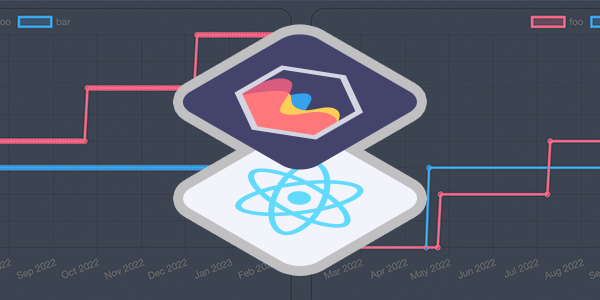AngularJs with Jest Unit Testing

Jest, a unit testing framework by Facebook, is commonly associated with the React JS library. However Jest is not specifically for React, and can be used to test any javascript code you wish.
Recently I've been using Jest with AngularJs 1.6 and have put together the following step-by-step guide on how to get setup.
This guide includes:
- Installing Angular Mocks and Jest CLI
- Creating an AngularJs Service
- Create Jest unit test file
- Running Jest tests with failed example
- Correcting service and running successful Jest tests
- Checking code coverage of tests
- TL;DR - Full Working Example on GitHub
Install Angular Mocks and Jest CLI
To use Jest with AngularJs you will require the Angular Mocks and Jest CLI packages, which can be installed using npm:
npm i angular-mocks --save-dev
npm i jest-cli --save-dev
In your package.json file the test script can then be set to jest:
"scripts": {
"test": "jest"
},
Create AngularJs Service
For the purpose of this example I've created a simple module with a service that does some basic calculations.
For now I've left out the logic within the functions to show that these tests fail.
Create Jest unit test file
Next we'll create the unit test file for testing our AngularJs service.
In this file we:
- Require the files needed for the test. This includes the AngularJs framework, Angular Mocks and the actual service we're testing,
mathservice.js.
require('../node_modules/angular/angular.min.js');
require('../node_modules/angular-mocks/angular-mocks.js');
require('./mathservice.js');
- Create a
describefunction which will group our tests together in the same block. In this instance the block is for testing theaddTwoNumbersfunction specifically.
describe('Math service - addTwoNumbers', function(){
- Mock the AngularJs module and inject the service. This will load the module and service so that we are able to reference the service to call the function.
beforeEach(
angular.mock.module('mathmodule')
);
var _mathservice;
beforeEach(inject((mathservice) => {
_mathservice = mathservice;
}));
- Set up several tests to ensure we receive the expected output from the function. Individual tests are set up by calling the
itfunction. Eachitfunction then calls theaddTwoNumbersfunction and compares the actual result with the expected result by callingexpect.
it('1 + 1 should equal 2', function(){
var actual = _mathservice.addTwoNumbers(1,1);
expect(actual).toEqual(2);
});
Run the tests and see the failed output
Run npm test and you should see the following output:
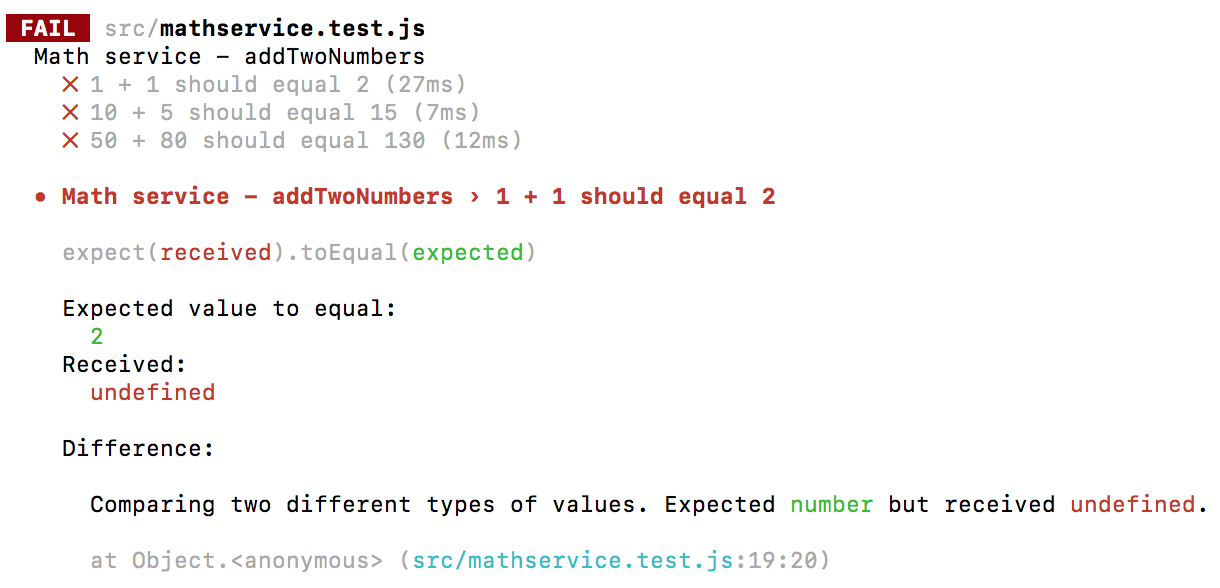
Add logic to the service and re-run the tests
Now if we update our service with the correct logic and re-run the tests we should see them all pass:
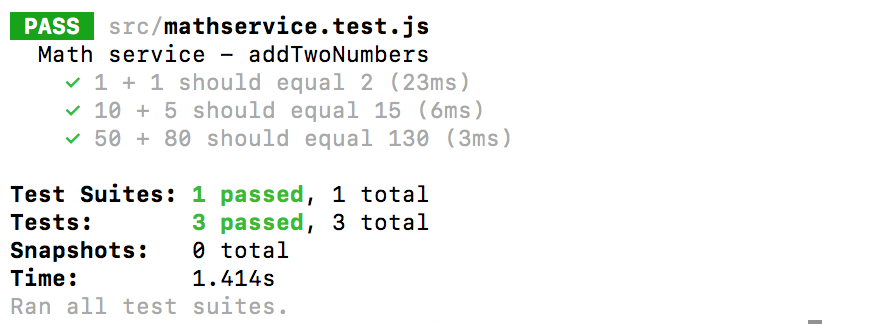
Code Coverage
Jest also has the ability to show code coverage across the JS files within the application.
This can be shown by running jest --coverage:
"scripts": {
"test": "jest --coverage"
},
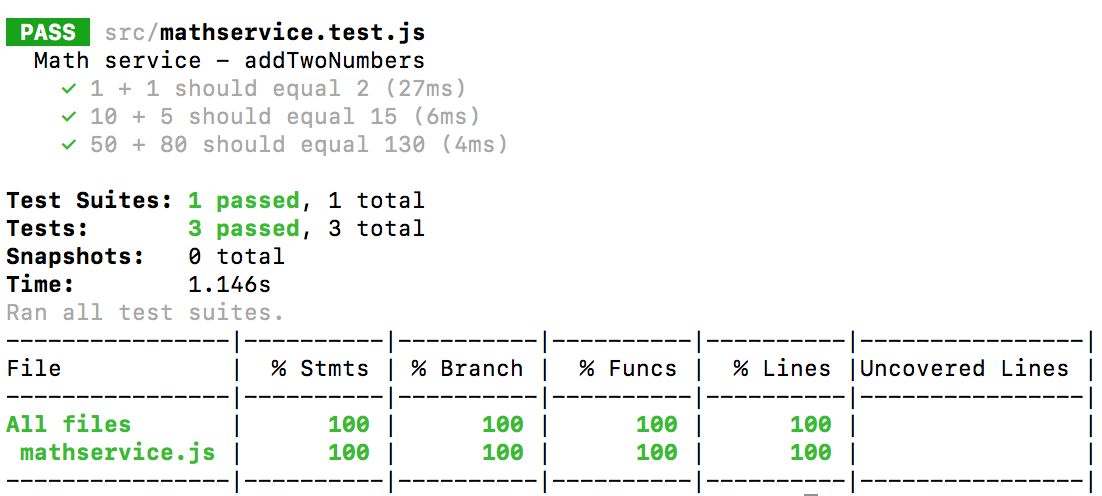
Now if we add an additional function to the Math Service without any tests then the code coverage report will show a reduced percentage and flag which lines of code are not being covered.
angular.module('mathmodule', [])
.factory('mathservice', function(){
var addTwoNumbers = function(x, y){
return x + y;
};
var multiplyTwoNumbers = function(x, y){
return x * y;
};
return {
addTwoNumbers,
multiplyTwoNumbers
};
});

Testing services with dependencies
If the service has a dependency itself, then this dependency will need to be mocked. For example if the mathservice example was being consumed by another service, then that service would mock mathservice like so:
beforeEach(function(){
angular.module('mathmodule', []);
angular.mock.module('mymodule');
angular.mock.module(function($provide) {
$provide.service('mathservice', function(){
return {
addTwoNumbers: function(x,y){
return x+y;
}
}
});
});
});
Full Working example
A full working example of this is available on GitHub:

